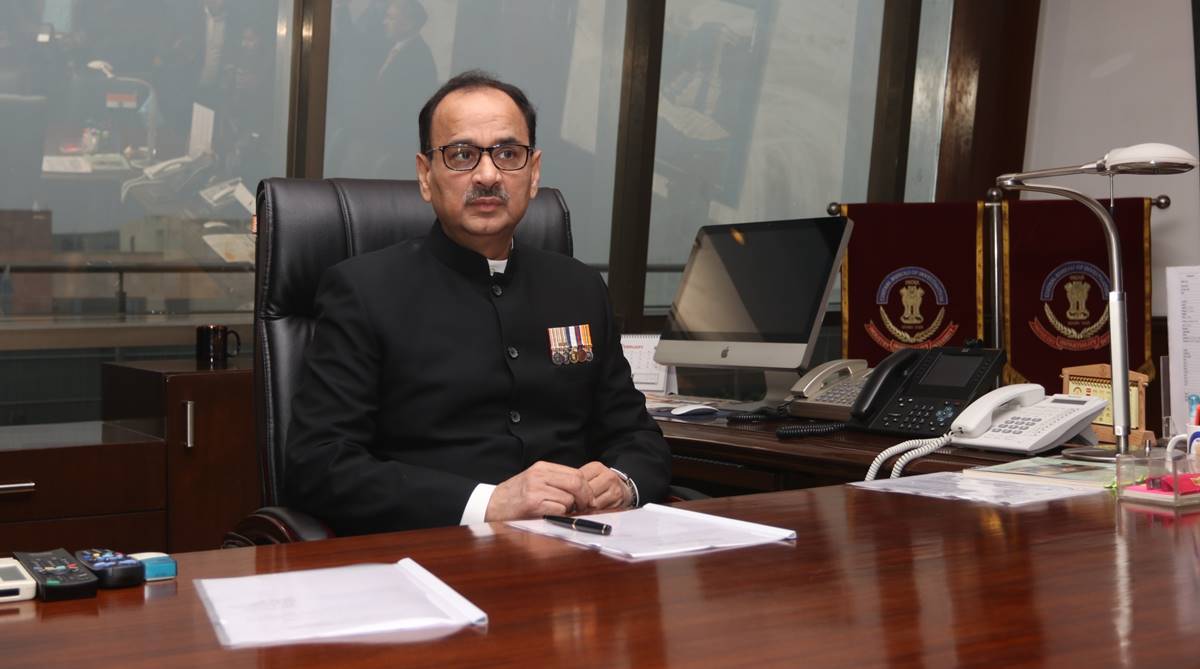India’s Got Latent: SC issues notice on YouTuber Ashish Chanchlani’s plea against FIRs
SC issues notice on YouTuber Ashish Chanchlani’s plea to quash or transfer FIR in India’s Got Latent case; tagged with Ranveer Allahabadia’s petition.
In the din and bustle of television debates on the Rafale deal and the removal of the CBI Director, Alok Varma, the nation was not adequately informed about the damage to the anti-corruption drive, most particularly when the BJP-led NDA government diluted the Prevention of Anti-Corruption Act, 1988 by repealing Section 13(1)(d), which deals with ‘abuse of public office‘. Another provision dealing with acquisition of disproportionate assets was diluted. The dilution of the anti-corruption law suits all political parties.

Former CBI Director Alok Verma. (File Photo: IANS)
A public servant ought to place service before self. In recent weeks, there has been a debate in the media on the integrity and independence of our institutions. The focus is on the Central Bureau of Investigation (CBI), Central Vigilance Commission (CVC), and the judiciary. The kerfuffle in the higher echelons of the CBI, particularly between its Director and Special Director, compelled the government to send both on leave. One major outcome was the dishonesty that marked public debates on television.
Party spokespersons, lawyers, retired police officers, civil society activists, and intellectuals participated in the debates. These debates lacked institutional integrity and independence of individuals who head these organizations. There are not many who place public service above self and personal aggrandisement. The autonomy granted to these institutions will be an exercise in futility if individuals place self before public service. The supposedly intellectual debates degenerated into derisive references to judgments of the Supreme Court and quasijudicial entities.
Advertisement
In the Rafale deal, a three-judge Bench of theSupreme Court pronounced that there is no “criminal misconduct” (corruption) on the part of the BJPled NDA government. But it did not have an impact on the public discourse. Party dissidents, political opponents, civil society activists, lawyers etc., questioned the judgment and called for its recall or review.
Advertisement
In the aftermath of the judgment, the action of the government to send the then Director of CBI, Mr Alok Varma on forced leave (in view of the in-fighting amongst officers in the organization), became a central issue in the public discourse. Mr Varma became the rallying point for a lobby consisting of political opponents, party dissidents and intellectuals to back the BJP-led government and to derive political dividend.
The retired Supreme Court judge, Mr Justice Patnaik, supervised the CVC enquiry against Alok Varma and the serving judge, Mr Sikri, was on the “panel” that recommended the removal of Mr Varma from the post of Director. Yet the lobby is trying to hold on to the straw that principles of natural justice cannot be observed by a “select panel” as this principle is not applicable to a transfer. It bears recall that the former Supreme Court judge, Markandeya Katju, had stated that the principle of natural justice is not applicable before the “Select Panel”. Mr Justice Patnaik has not mentioned the “criminal misconduct” of Mr Varma.
He overlooked the fact that any “misconduct” viz., sexual misconduct, abuse of office and wrongdoing in the discharge of official functions, willful disobedience to CVC are adequate grounds to remove the CBI Director. Even the officer’s reputation for integrity or the lack of it, lack of leadership qualities to get along with his team, performance parameters and so on constitute the grounds for removal.
Favouritism in appointments, selecting officers of questionable integrity, attempts to influence investigations and its process of searches and arrests, sabotage of evidence in enquiries and investigations, deletion of names from the chargesheet of some of the accused who figure in the FIR, shielding the corrupt among subordinates from disciplinary action, assigning of sensitive cases to such officers, are all instances of wrongdoing. If not checked, it can wreck the reputation of the entity. Favouritism and corruption are manifest in various forms.
From the administrative perspective, the primary reason for shifting an official from a particular post is not because there are serious charges of corruption pending against him, but whether a fair enquiry into his misconduct or criminal misconduct is possible when a person holds on to that post.
Unless that official is transferred, no evidence except the documentary will be forthcoming. He may possibly destroy the documents too (tampering with evidence). It is undesirable to allow him to continue in the post.
In the din and bustle of television debates on the Rafale deal and the removal of Alok Varma, the nation was not adequately informed about the damage to the anti-corruption drive, most particularly when the BJP-led NDA government diluted the Prevention of Anti-Corruption Act, 1988 by repealing Section 13(1)(d), which deals with “abuse of public office”. And another provision dealing with acquisition of disproportionate assets was diluted. The dilution of the anti-corruption law suits all political parties. Therefore, they and their surrogates in the intellectual circles did not agitate over the Alok Varma case seriously enough.
A more sinister game is now being played by some Chief Ministers. They have reportedly stopped the functioning of the CBI in their States. Which entity will probe charges of corruption against some Chief Ministers? Are the latter the sole judges of their criminal acts? Is not self-policing against the spirit of the Rule of Law? Will the country have to wait for a judicial route towards a CBI enquiry?
There is anarchy. Governance is drifting. The debaters have failed to highlight this drift. The polity needs to set an example for the unelected institutions. National interest should be accorded precedence to that of the party, its leadership and cadre interests. Only then can the drift be checked and governance restored.
(The writer is a thinker and author)
Advertisement